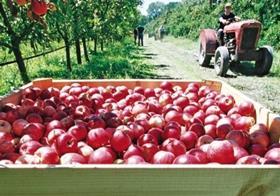
New Zealand’s Ministry of Business, Innovation & Employment will inject NZ$4.35m (US$3.42) into a new programme aimed at improving market access for the country’s pipruit industry, with a particular focus on Asian markets.
The Apple Futures II programme will support the development of new tools to control pests and diseases in apple and pear orchards across the country, along with the creation of new systems to remove insects during postharvest.
This programme will build on a 20-year relationship between the pipfruit sector and Plant & Food Research, which has seen the development of pest management strategies for pipfruit growers. Alan Pollard, CEO of Pipfruit New Zealand, said the new programme would play an important role in developing markets across Asia.
“Access to new high-value markets is a priority for New Zealand’s pipfruit sector if we are to realise our goal of NZ$1bn (US$788m) of exports by 2022,” Pollard explained. “There are increasingly stringent phytosanitary requirements in these markets, as well as a growing desire by consumers for reduced pesticide use. This funding will allow us to develop new tools and technologies that ensure we can deliver shipments that are free from pests and diseases, maintaining New Zealand’s reputation as a supplier of premium produce.”
Pollard said New Zealand’s pipfruit trade is currently valued at around NZ$500m (US$393m) per annum, with Asian markets generating roughly a third of this revenue. It is estimated that Asia will absorb about 50 per cent of New Zealand’s export crop by 2022, at a value of around NZ$500m.



